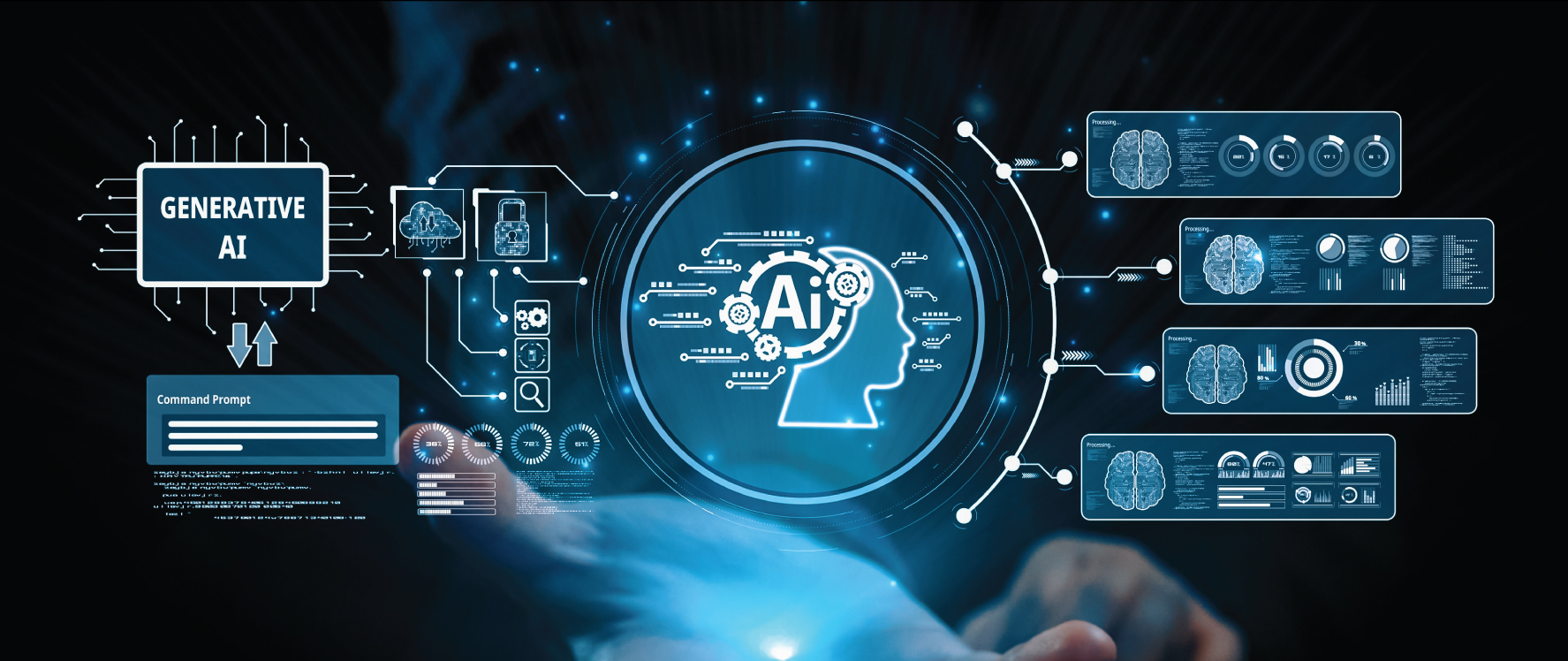The idea of intelligent agents that can think, act, and learn on our behalf once belonged to the world of science fiction. Today, it is rapidly becoming an enterprise reality. Agentic AI and autonomous systems are now capable of handling complex multi-step workflows, integrating with enterprise tools, and making contextual decisions, freeing people to focus on higher-value judgment and innovation.
But unlocking this potential isn’t just a technological challenge; it’s an organizational one. As enterprises move beyond experimentation, they need structure, governance, and repeatable frameworks to scale AI responsibly. This is why so many companies are now investing in GenAI Centers of Excellence (CoEs) to turn early pilots into enterprise-wide transformation.
Analysts forecast exponential growth ahead.The global market for agentic AI, still in its infancy, is projected to reach tens of billions of dollars within the decade. Multi-agent architectures, adaptive learning systems, and autonomous workflows are all driving a wave of enterprise automation unlike anything we’ve seen before. The momentum is undeniable, and the organizations that act today will define the next generation of intelligent enterprises.
What Agentic AI Really Means for Enterprises
Agentic AI refers to systems that understand goals, plan steps, take autonomous action, and improve through feedback. Unlike traditional AI models that simply return an output, agentic systems can connect to APIs, orchestrate tools, analyze data, make decisions, and collaborate with humans to complete end-to-end processes.
Imagine an insurance claims workflow where anAI agent reviews the claim, extracts details, checks policy conditions, requests missing documents, and prepares a resolution, long before a human reviewer steps in. In IT operations, autonomous agents can diagnose incidents, run automated fixes, and document solutions in real time.
These agents represent more than just automation. They signal a shift toward systems that can reason, adapt, and execute with increasing sophistication. However, for enterprises to adopt them confidently, these systems must remain trustworthy, explainable, secure, and compliant.
Why a GenAI Center of Excellence (CoE) Matters
Enterprises that experiment with agentic AI in silos often face two major risks, fragmented innovation and unmanaged exposure. Without coordinated governance, AI models can behave unpredictably.Without shared frameworks, teams reinvent the wheel repeatedly, slowing down adoption.
A GenAI CoE offers a centralized engine for scaling AI responsibly. It provides the architecture, standards, and governance required to innovate at speed, while maintaining control.
A mature CoE typically focuses on three foundational pillars:
- Architecture: Designing how agents integrate with enterprise systems, data, and security layers.
- Governance: Creating policies on data privacy, bias testing, validation, and human oversight.
- Enablement: Training teams, building reusable components, and measuring business impact.
This structured approach ensures consistency, prevents vendor lock-in, and aligns innovation with enterprise value.
Where Agentic AI Is Already Making an Impact
- Agentic AI is already transforming multiple sectors:
- Banking & Financial Services: Autonomous agents analyze transactions, detect anomalies, support relationship managers, and assist with compliance workflows.
- Manufacturing: Agents monitor equipment health, optimize production schedules, and coordinate supply chain adjustments in real time.
- Retail & CPG: AI agents manage dynamic pricing, run promotions, and forecast demand fluctuations with greater accuracy.
- Pharma & Healthcare: Agents streamline documentation, automate trial reporting, and support regulatory submissions with improved traceability.
Organizations adopting agentic systems are reporting 30–40% improvements in process efficiency, reduced operational costs, and faster turnaround times on complex workflows.
But with great capability comes greater responsibility. These systems must remain explainable, secure, and adaptable, something only a governance-led framework can ensure.
Challenges on the Road to Autonomy
Scaling agentic AI introduces new challenges, including:
- Unclear ownership: Determining who governs decisions made autonomously.
- Data fragmentation: Agents require unified, governed access to data, not scattered silos.
- Bias and explainability: Autonomous decisions must be transparent and equitable.
- Operational readiness: Moving from pilot to production requires continuous monitoring, retraining, and observability.
Addressing these hurdles demands more than advanced models, it requires an organizational blueprint. A GenAI CoE delivers exactly that.
From Single Agents to Multi-Agent Ecosystems
The next evolution of enterprise AI will involve multiple specialized agents collaborating to solve broader, dynamic problems. These multi-agent ecosystems will negotiate tasks, adapt autonomously, and coordinate workflows across functions.
Building AI That Works Responsibly
At Exponentia.ai, we believe the future lies in balanced innovation, where autonomy is paired with strong oversight and measurable outcomes. Through our GenAI Center of Excellence, we help enterprises build agentic systems that are trustworthy, explainable, and aligned with business intent.
From governance models to orchestration layers, our approach ensures that AI isn’t just powerful, it’s responsible.
Join us for our upcoming webinar, “Building the Future: Agentic AI and Autonomous Systems,” where we will unpack architecture patterns, governance frameworks, and real-world adoption stories that show how enterprises can move from experimentation to transformation.
Date: Thursday, November 27
Time: 2:30–3:15 PM IST; 1:00-1:45PM GST; 9:00-9:45 GMT
Speaker: Chalapathi Rao Komirisetti, CoE Lead-GenAI, Exponentia.ai
Register here: Go To Webinar



.jpg)

















































%20(1).jpg)





.svg)

.svg)
.svg)
.svg)